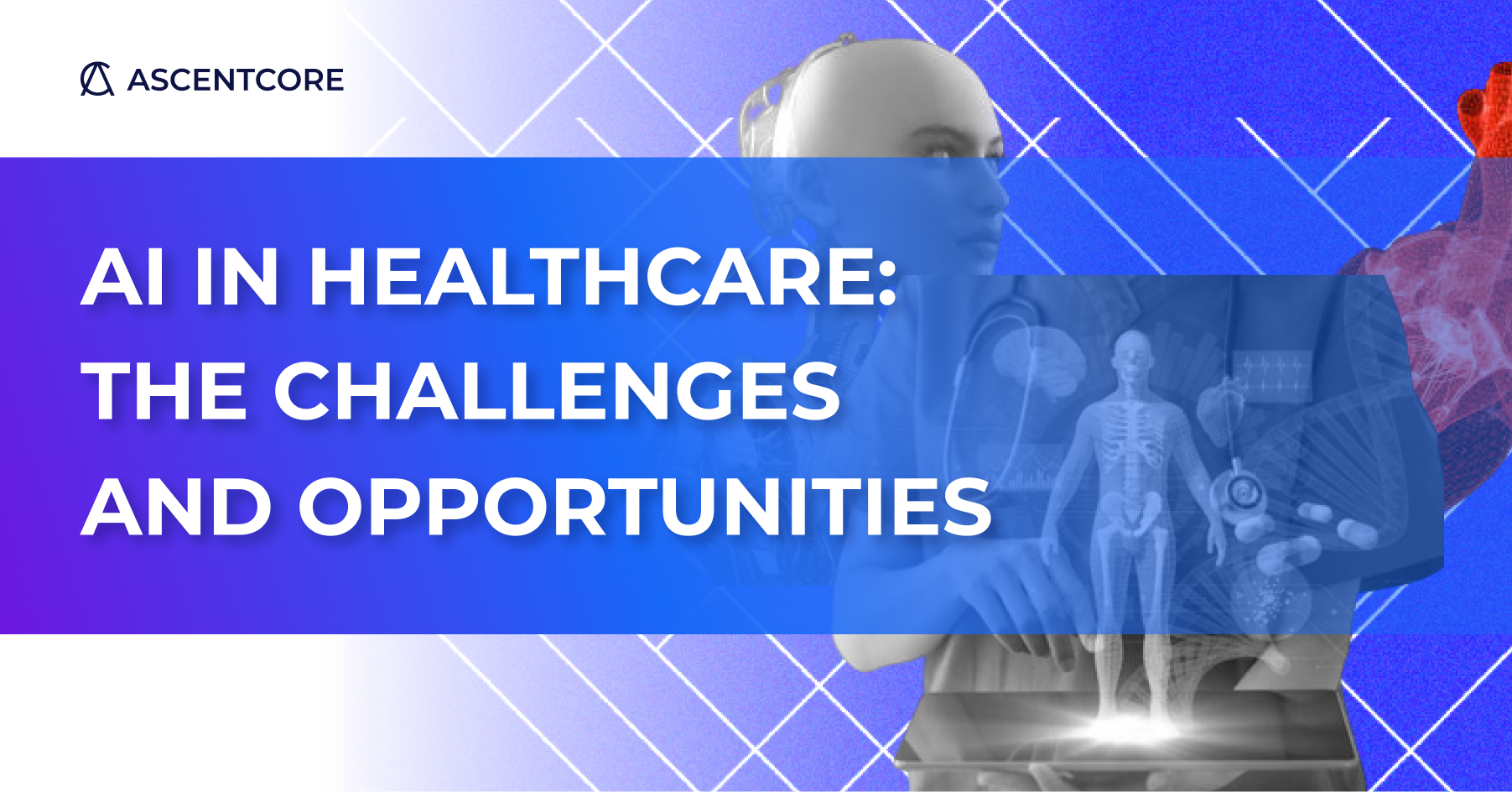If you’ve seen a personalized ad while scrolling your social media channels or asked your smartphone assistant for a traffic update, you’ve interacted with AI technology. Undoubtedly, this tech has revolutionized our daily lives, and it’s doing the same for many industries, including healthcare. Whether it’s early diagnoses or personalized medication, AI is disrupting the healthcare industry for the better. But, the use of AI in this industry also has significant and unique challenges to keep in mind. In this article, we’ll dive into a few examples of AI’s positive impact on the healthcare industry and how we can overcome some of the challenges.
Innovative Uses of AI Technology
A significant upside of AI technology is that the underlying tools and methodologies can be universally applied across industries. This includes the mathematical models used for training, the architecture that powers the models, and the software to bridge the two. This similarity has opened the doors for the novel use of AI technology in the healthcare industry.
One example of an innovative application of AI for healthcare comes from a participant in AI4ALL’s Changemakers in AI program. Riya Bhatia has been researching the real-time detection of fibromyalgia – a chronic disorder that causes pain and tenderness throughout the body and fatigue. Using machine learning and computer vision techniques, Riya has been able to identify facial expressions while also measuring the stiffness of a patient’s skin using a special glove to predict a fibromyalgia diagnosis. This approach could be revolutionary in measuring and diagnosing pain – no small feat given pain’s complex and subjective nature. It’s also a great example of how AI can help physicians do their jobs even better – combining their knowledge and expertise with the power of technology.
Scripps Research Institute, in partnership with Intel, has developed a deep learning algorithm that can also enhance the ability of doctors to do their jobs. It could identify 23 patients with a high risk of cardiovascular disease, which has been undetected by traditional statistical methods, with 85% accuracy. Also known as precision medicine, this technology relies on large amounts of data gathered from innovations such as biotechnology, genome sequencing, and health sensors patients use at home. Precision medicine relies on advanced supercomputing algorithms with deep learning, thereby leveraging the cognitive abilities of physicians at a new scale.
While the industry has grown leaps and bounds over the decades, and innovative technology has long been in use, AI can still make that tech even better. For example, breast cancer is the most frequently diagnosed cancer and the leading cause of cancer-related deaths among women worldwide. Early diagnosis is critical to enabling effective treatment that can help more women survive breast cancer. And while mammography and ultrasounds have long been used to help with early detection, they’re not without limitations, including the difficulty in interpreting their results which can lead to false positives. And with false positives can come unnecessary and expensive treatment and surgeries. But, with the help of an AI system, radiologists were able to decrease their false positive rates by 37% and reduce requested biopsies by 27%. In fact, the AI technology achieved a higher rate of accurate diagnoses than the average of ten board-certified breast radiologists.
With Great Technology Comes Great Challenges
The beneficial role that AI can play in the healthcare industry is clear, but that doesn’t mean it’s perfect. Leveraging this technology in a field like healthcare has unique and complex challenges that will be important to address.
One of the biggest challenges for the healthcare industry is data collection and security. While healthcare data regulations are necessary to prevent the misuse or theft of sensitive data, adhering to them requires significant time, effort, and money. With sensitive and highly regulated personal health information in the mix, fully leveraging AI technology can take time. Since AI applications require data for learning and training models, accessing data is often the most challenging and time-consuming step of the development process. There’s also the added complexity of maintaining various levels of security when interacting with the data.
Regulations and security aside, healthcare data’s complex and often subjective nature of healthcare data makes it challenging to leverage in ways other industries don’t face. Self-driving cars, for example, can rely on accurately labeled roadways, bridges, and tunnels to help the AI technology learn and evolve. However, in the healthcare field, data comes from a handful of subject matter experts who generate high-quality data labels, such as “malignant” or “benign” for healthcare diagnoses. Since an AI model’s intelligence comes from the data it’s trained on, it’s critical that labels like these are accurate. To help with more precise labeling and enhance the amount of data they use, healthcare practitioners have come to rely on open-source, public data as a supplementary source of information for AI models.
Another challenge with healthcare data is a logistical one: the sheer size of the files. Picture a digital image of a tumor biopsy. In the physical world, a physician would study the biopsy under a strong microscope to get the high level of detail needed for effective analysis. However, an image like this could be tens of gigabytes of data in the digital world. That’s roughly three times larger than an hour-long TV show in HD! Transporting and processing such extensive data requires enormous computing power, effort, and time to generate reliable and accurate analyses. One potential solution to this challenge is data pre-preprocessing, modeling, and computing architecture. For example, large images can be broken down into smaller images, reducing the computational power needed to analyze the image.
Leveraging AI for a Healthier Tomorrow
The impact of AI technology on our collective health is limitless. With disruption and innovation, we can find ways to improve diagnoses for chronic and life-threatening diseases and enhance the ability of physicians to harness their knowledge and abilities. And while AI in the healthcare industry presents complex challenges, we can overcome them with solutions as innovative as the AI models themselves.
If you’re curious to learn how AI solutions can help your business, reach out to AscentCore. With a focus on AI and ML, we deliver transformational results for our clients by leveraging the latest technology and empowering companies to disrupt, transform, accelerate, and scale.














